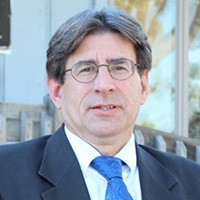 Eaton County, MI White Collar Crime Lawyers
Eaton County, MI White Collar Crime Lawyers
Sponsored Law Firm
-
 x
x

Click For More Info:
-
The Williams Law Firm
411 W Lake Lansing Rd Ste C-110 East Lansing, MI 48823» view mapCriminal Defense Law A Defense Lawyer With Proven Results
Knowing the law certainly is a necessary prerequisite but an attorney’s ability to effectively communicate is perhaps his or her paramount importance.
800-945-0701
Not enough matches for Eaton White Collar Crime lawyer.
Below are all Eaton lawyers.
Sponsored Lawyers
1-10 of 34 matches
Divorce & Family Law, Estate, Lawsuit & Dispute, Adoption
Donald J. Baranski received his Bachelor of Arts in Humanities Pre Law, from Michigan State University. This was a triple major of American History, Philosophy, and Psychology. He then received a Master of Arts degree in Philosophy from Michigan State University. He then obtained his Doctorate in Law from Michigan State University College of Law. Baranski has been a licensed Attorney and Counselor at Law in the State of Michigan since 1988. He clerked for a trial judge for two years. He worked as a City Attorney, and as a public defender. Baranski has handled a general practice of law including: family law, criminal law, juvenile law, adoptions, contracts, real estate, landlord/tenant, probate estates, wills & trusts, guardianships and conservatorships, mental health law, social security disability, workers compensation, unemployment compensation, education law, collections and bankruptcy. Baranski has conducted jury trials and bench trials in District, Probate and Circuit Courts. Baranski is also admitted to the Western District of Michigan and Eastern District of Michigan Federal Courts.
(more)


 Richard L. Williams East Lansing, MI
Richard L. Williams East Lansing, MI Practice AreasExpertise
Practice AreasExpertise

